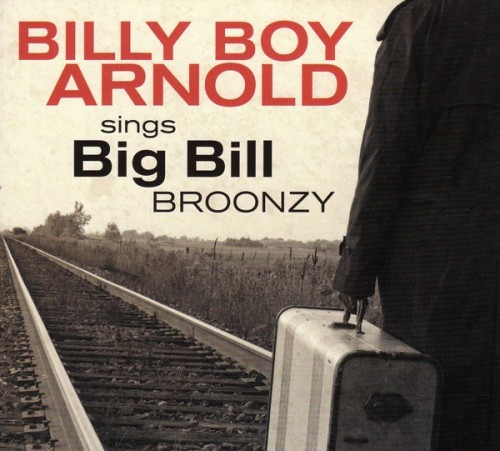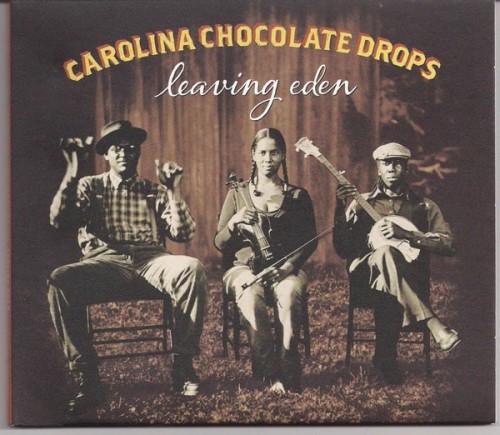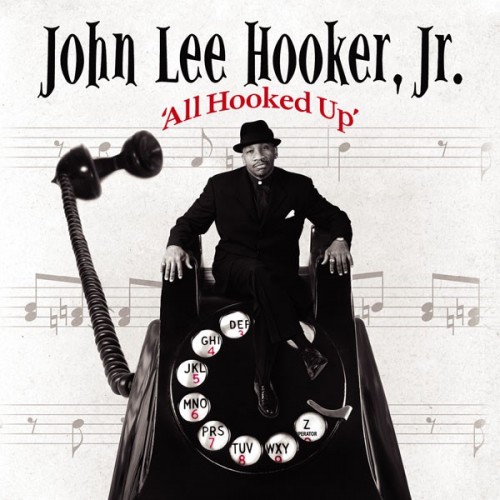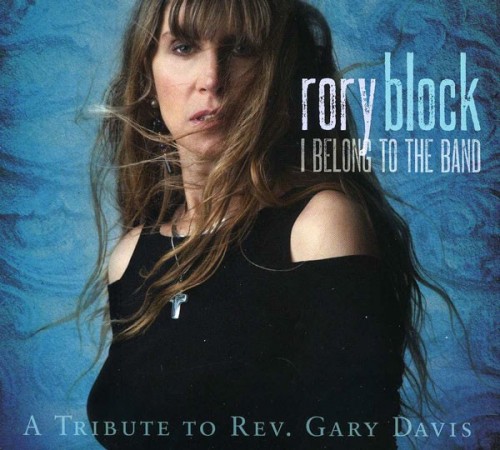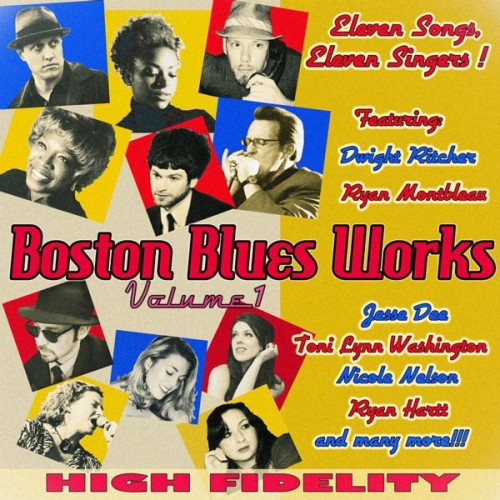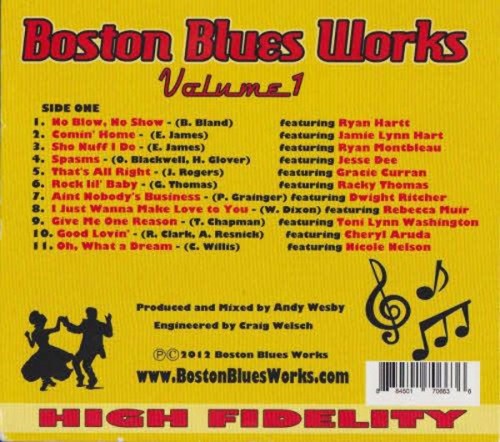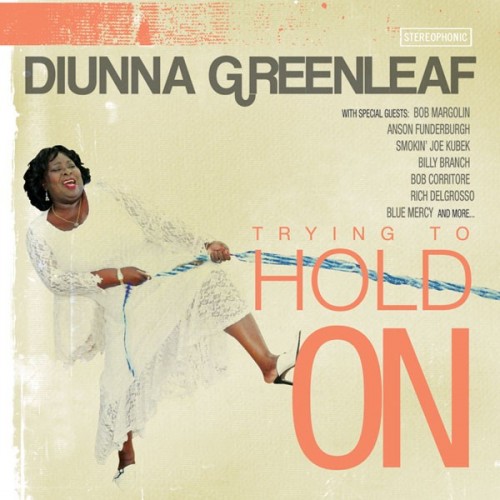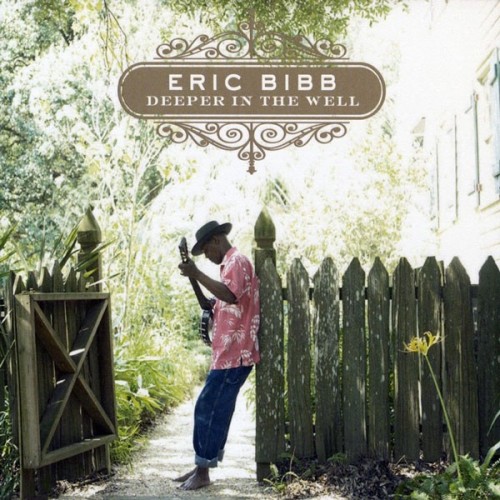Christmas Blues CDs
Delta, Piedmont and Urban Derivatives.
By: David Wilson - Dec 17, 2012
No, not the kind of blues that comes from being alone on Christmas, nor for that matter having to spend it with those, family or otherwise that you find less than compatible. I’m talking here about Delta Blues, Piedmont Blues, and urban blues derivatives that seem to be constantly evolving.
I thought I would give you a few suggestions for holiday gifting to the discerning blues lover in your life, or for putting on your own wish list. These are all items I have enthusiastically reviewed in more depth earlier this year elsewhere. Furthermore they are treasures in that they will not be prominent or commonly found in just any store. They are the kind of gem one must look for with some afore knowledge.
*************
Billy Boy Arnold Sings Big Bill Broonzy
Electro-Fi Records
Electro-Fi 3430
Chicago’s Billy Boy Arnold is now in his late 70s, but still sings and plays as if he was much younger and with an assured confidence that begs no forbearance.
In his teens, in the early ‘50s he performed on the street with partner Ellas Bates who later was known as Bo Diddley. He cut his first record at 16 with some direction from Big Bill Broonzy, himself.
Now, with CD compilations of Muddy Waters and Sonny Boy Williamson creations to his earlier credit, Arnold takes on the songs of Big Bill Broonzy showing off the genius of Broonzy and the consummate artistry of Arnold himself.
While not above a bit of variation of Broonzy’s originals, he shapes the material to his own interpretive style without sacrificing the ultimate intimacy of Big Bill’s revelations.
Producer Eric Norden provides acoustic guitar, Billy Flynn, electric guitar and mandolin. While respecting Broonzy’s melodies, each adds their distinctive stamp giving Billy Boy support for his vocals. Beau Sample’s acoustic bass, Rick Sherry’s percussion and an understated clarinet along with Billy Boy’s harp result in a lush textured musical soundscape.
Broonzy wrote hundreds of songs. Of those chosen, all worthy, Big Bill’s signature “Key To The Highway” was essential. My favorites though not by much are “Looking Up At Down” and “It was Just A Dream,” but they could change the next time I listen.
*************
Leaving Eden
Carolina Chocolate Drops
Nonesuch Recordings
2012
The Carolina Chocolate Drops excel in so many ways it is difficult to separate and extol all of them. Everything they do, they do with so much elegance, gentility, ease and joy that we get drawn in to the music and their passion and respect for that music.
Dom Flemons, Rhiannon Giddens, Hubby Jenkins, Leyla McCalla and Adam Matta combine their talents on this CD offering a wide sample of Black String Band tunes tradition including a few blues..
Rhiannon Giddens has a clear, appealing and fluid voice, further enhanced by the restraint she shows in the paucity of runs, trills and ornamentation (that the majority of emotionally handicapped vocalists use today as a substitute for substance,) yet with the grit, rasp and bite essential to doing justice to the material when required. If she chose to be a “blues” singer exclusively her performances of the Ethel Water’s “No Man’s Mama” and her own enhancement of Etta Baker’s “West End Blues,” prove her capability.
Dom’s vocals are sometimes submerged in the mixing, intentionally I think to enhance the instrumental tracks. I would appreciate a little more bringing forth of Dom’s vocals.
Hubby’s primary contributions are virtuoso mandolin performances. He does show vocal competence as lead on “I Truly Understand That You Love Another Man.”
Leyla McCalla is touring with the group now, but her contributions to this release are limited. It might take a bit of a stretch to imagine a cello as an integral part of a traditional string band, but Leyla makes it work and her voice adds scope and variety to the harmonies in which she participates I look forward to a future release where she may be more integrated into the band.
Masters of their instruments; 4 and 5 string banjos, fiddle, mandolin, guitar, Cello, jug, harmonica, kazoo, snare drum, bones, quills, tambourine and not to forget, beatbox, every cut on this CD is prime and every one inspires immediate repetition.
*************
All Hooked Up
John Lee Hooker Jr
Steppin’ Stone Records
While there is little doubt that the influence of his father is a part of his music, the same can be said of most blues musicians. John Lee Hooker was a seminal force and a maverick to boot in having an absolutely unique delivery.
Junior’s delivery, while not as unique, nonetheless is as complex and does reflect some of those characteristics that we most valued in his father’s performances.
His vocal often challenges the beat. He changes tempo easily and unexpectedly, not quite as freely as his dad did, but often enough to be considered a signature. He has the boogie down cold.
His compositions range over a wide landscape of social and psychological situations and while some of them will be controversial, he does not shy away from expressing his feelings, he come off a little preachy. A bit preachy in interviews, in his music the moral values are there, but honestly combined with his frailties and his failures.
His imagery is up modern and his sensibilities, contemporary. Witness the compassion expressed for a woman trapped in stagnant marriage as described in the lead song “Tired of Being a Housewife.”
His precise articulation adds a great deal of connection to all that he sings.
I really enjoyed the duet with Betty Wright, on I Surrender, and on this and on all of the numbers credit has to be given to producer Larry Batiste who is so in synch with Hooker and his artistry that he knows when to restrain Hooker and when to set him free to wail.
This is a standout production which pays ample tribute to its roots while branching into a sampler of many different blues subgenres and it serves all of them well.
*************
I Belong To The Band
A Tribute to Rev. Gary Davis
Rory Block
Stony Plain Records
SPCD1359
Here is a remarkable recording by a remarkable musician and in its attempt to pay tribute to the unparalleled Reverend Gary Davis, it succeeds precisely because of where, in performance, it fails.
Rory is the first one to admit that she can never play or sing “just like” any of the giants, but espouses the doctrine that attempting to do so is a strategy for growth. With Rev. Gary Davis, there arise a few factors to make the attempts even more of a challenge than with most.
The guitar was more an extension of the Reverend than an instrument. It was rarely out of his hand. Dave Van Ronk, himself a keen observer of Gary Davis and his mechanics, tells the story of sharing a ride back to New York with Davis in the car of a mutual friend. The Rev sat in back noodling on the guitar while Van Ronk sat up front. After listening to Gary play the same tune for over an hour, Van Ronk turned to him to complain only to find Davis playing while deep in sleep.
Gary Davis’ voice, deep and gravelly and his guitar’s voice, piquant and brilliant had long come into a negotiated relationship that precisely accommodated each other. Each had learned how best to nestle with the other. Gary’s guitar phrasings were endlessly varied in extremely subtle nuances so that even with a fairly limited repertoire, his performance constantly sounded fresh and of the moment.
From “Samson and Delilah” all the way through to the grief laden “Death Don’t Have No Mercy” which ends the performance, Rory uses vocal restraint, wisely refraining from trying to emulate Gary’s sound yet captures the essence of Gary’s runs, picking style, unique bass lines, point counter point, more competently than I ever would have expected to hear from anyone other than himself.
And yet, when I then listened to Gary’s renditions, the difference in presence, brilliance, contrast of Gary’s voice with the voice of the guitar, then and only then, did I understand how much more difficult it would truly be to emulate the Rev.
Rory’s tribute is tribute indeed to aim so high, to climb so far, and still show us how much farther beyond is the mark. And if it leads others to discover the Reverend Gary Davis and his body of work, it is a treasure in itself.
*************
Boston Blues Works – Vol I
CD and LP
With the very first bar that drifted out of my speakers I was transported back to the early ‘60s and memories of Boston’s WILD AM radio.
Recorded live in the studio with no overdubs it embodies the spontaneity that was once more common to recorded music. Raw and real it grabbed me and my feelings and I felt joy and despair, lust, love and grief, sometimes in seemingly contradictory combinations.
It makes me want to move. While I barely manage to twitch these days, in my head my feet are bouncing, torso twisting and hips are swaying. That’s a tribute to the backup musicians who lay down a mesmerizing beat, solid melodies and a tether that allows for some fine vocal phrasing.
There is not a shabby or throwaway cut, here, no filler, no fluff.
For me, the standout performances were Toni Lynn Washington’s “Give Me One Reason”, Dwight Ritcher’s “Ain’t Nobody’s Business” and Nicole Nelson’s wrap-up, “Oh What A Dream.” But I found pleasure on every track have nothing disparaging to say about any of it save I would have liked more.
Boston Blues is alive and thriving and can hold its own with any scene in the country.
No need to take my word for it. Surf on over to http://bostonbluesworks.com/fr_home.cfm and sample it for yourself.
*************
Diunna Greenleaf
Trying To Hold On
Blue Mercy Records
BMR930
If faith-based blues has not already been defined as a genre, Diunna has done so here and now with this release. Her performance here is raw Gospel, lightly seasoned with Jazz, honky-tonk and swing. The vocals well forth from the depths of heart and gut with some discipline, but little compromise and echoes of, Ma Rainey, Bessie Smith, Mahalia Jackson, Marion Williams and Sister Rosetta Tharpe.
“Be For Me,” a New Orleans style strut kicks off a program which ends with the slow march and idealistic dirge, “Cause I’m A Soldier.”
While Diunna may not be the greatest songwriter her songs are elevated by the conviction inherent in her performance. There is nary a one that I was loathe to listen to from start to end though not all of them are equally compelling.
I am fond of “Growing Up And Growing Old” the arrangement of which smacks of ‘60s gospel icons, the Staples Singers without the harmonies, but with a guitar accompaniment that would have Pop Staples grinnin’.
“Beautiful Hat” stands out in a lilting arrangement of a melody I first knew as the spiritual, “This World Is Not My Home”
“Sunny Day Friends” smacks of ironic spirituals akin to “Scandalizing My Name”
“You Don’t Feel That Way About Me”, a song of unrequited love has a country twang and a simple forlorn plaintive lament.
Throughout, the studio musicians play to the strengths of songs and Diunna’s voice supportive and stable, Bob Margolin in particular is superlative, but that is no surprise. Rich Del Grosso’s mandolin on Beautiful Hat stands out for me and I would like to hear more of him.
With a subtleness that will appeal to aficionados, it is of enough pop flavor to appeal to lighter tastes as well
For online samples and purchase, http://www.cdbaby.com/cd/diunnagreenleaf.
*************
Eric Bibb
Deeper In The Well
Stony Plain Records
SPCD 1360
Eric Bibb is the son of Leon Bibb, an iconic black folk singer who paved the way for my personal discovery of country blues, gospel, field songs and the field recordings of black musicians.
Eric does not continue the art of his dad so much as he absorbs and broadens it, offering a charming and highly listenable collection of chestnuts, self penned compositions, and well-chosen songs from the repertoires of Taj Mahal and Bob Dylan.
Designating “Boll Weevil” and “Sinner Man” here as chestnuts is begging the question a bit. Neither the field song, “Boll Weevil,” nor the spiritual, “Sinner Man,” as arranged and performed here are much like their familiar oft recorded versions of old. Both are given contemporary treatment, fresh, novel and intimate. The same can be said for Dylan’s “The Times They Are A Changing.”
Eric refuses to trap himself within the rigid blues forms that confine the artistry of many performers, yet he never strays so far from those forms that we wonder what the music is about. Poetry, passion and personal expression are stamped on every phrase, infused with the echoes of field hollers and juke joint joy. The preacher’s ringing sermon and the choirs response lingers faintly as chords fade.
Dylan’s one piece of advice to Eric was to “keep it simple.” If simple meant clean, economical and precise, Eric put the advice to good use. The accompaniment on each of these tunes is to the point with few if any excesses. Yet it is always sufficient to the material and magnetic to our attention.
His love and enthusiasm comes through on every cut and provides us with a fresh and very satisfying bounty of blues flavored tunes.
*************

